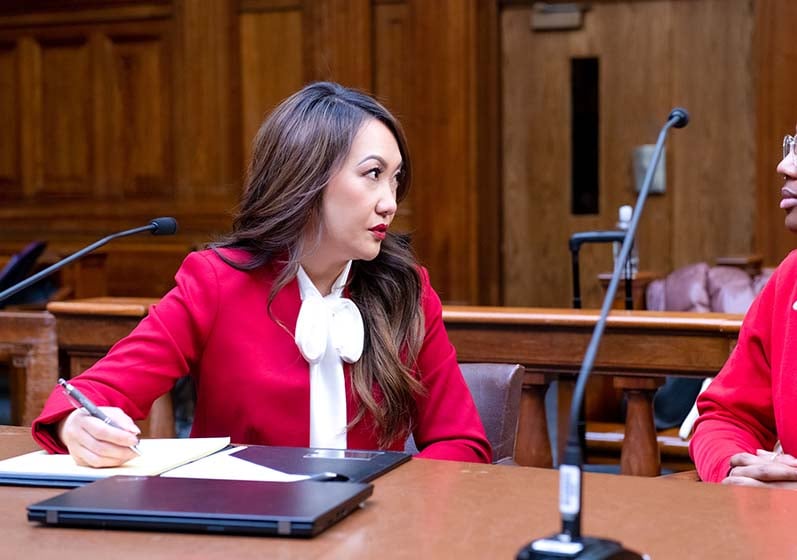Decoding the Intricacies and Payments of Appellate Attorney in the Judiciary
In the complex internet of the judiciary, appellate attorneys stand as the architects of lawful strategy, diligently sculpting arguments that hold the power to sway decisions of paramount relevance. As guardians of justice, these legal practitioners navigate the complexities of situation regulation, using their experience to figure out the subtleties of legal criteria and craft engaging narratives that resonate within the solemn halls of appellate courts. Their contributions expand far past simple representation; they are the defenders of due procedure and the sentinels of lawful stability (post conviction attorney). Yet, behind the veneer of their poised temperament exists a realm of details waiting to be unraveled, shedding light on the extensive effect these lawyers possess within the judicial landscape.
The Role of Appellate Lawyers
Appellate legal representatives play a vital role in the legal system by focusing on handling appeals and promoting for clients in higher courts. These lawful specialists bring a distinct capability to the table, concentrating on evaluating trial records, recognizing lawful errors, and crafting convincing debates to existing prior to appellate courts. Their key purpose is to seek a fair resolution for their clients by testing lower court decisions that may have been based upon inaccurate analyses of the law or procedural missteps.
Furthermore, appellate attorneys work as guardians of the legal concepts and criteria that shape our judicial system. Through their diligent study, thorough writing, and oral advocacy abilities, they not just seek justice for individual customers however likewise add to the growth of the regulation by shaping lawful interpretations at the appellate degree - post conviction attorney. post conviction lawyer illinois. Their job helps make certain uniformity, fairness, and accuracy in the application of lawful standards, eventually promoting the honesty of the lawful system as a whole

Analyzing Instance Criteria
Examining past case criteria is a fundamental element of lawful evaluation in appellate technique. Instance criteria, also called judicial criteria or legal criteria, describe previous court decisions and judgments that are thought about as authority for determining succeeding cases. Evaluating situation criteria allows appellate legal representatives to understand how the law has been interpreted and applied in similar situations, offering important assistance for arguing their existing situations.
By researching previous instance criteria, appellate legal representatives can recognize appropriate legal concepts, analogies, and arguments that have been successful in the past. This analysis helps lawyers to reinforce their very own disagreements, expect counterarguments, and craft persuasive legal approaches. Moreover, instance criteria play a critical function fit the development of the regulation, as they develop the basis for consistency, predictability, and fairness in the judicial system.
Essentially, examining instance criteria is a cornerstone of appellate technique, allowing attorneys to navigate complex legal issues, supporter successfully for their customers, and add to the evolution of legal concepts via educated and strategic argumentation. - construction law appeals
Crafting Convincing Lawful Arguments
Crafting convincing legal disagreements is a critical skill for appellate attorneys to properly support for their customers in court. Appellate lawyers have to diligently craft their lawful debates to persuade judges to rule in support of their customers. To create engaging disagreements, appellate legal representatives have to extensively assess instance regulation, laws, and laws to sustain their placements. Furthermore, they have to anticipate counterarguments and address them preemptively to strengthen their situation.
Effective lawful arguments normally adhere to a structured format, starting with a clear and succinct declaration of the lawful problem at hand. Appellate legal representatives then present pertinent realities and apply the regulation to the particular situations of the case. They make use of convincing language and logical thinking to assist judges in the direction of the desired verdict. In addition, appellate attorneys commonly rely upon analogies, theoretical try these out situations, and policy factors to consider to reinforce their disagreements even more.
Navigating the Appellate Process
After building convincing lawful arguments, appellate attorneys must browse the appellate procedure with precision and critical planning to make certain the finest possible result for their clients. The appellate process involves a series of procedural steps that require careful focus to information and complete understanding of the rules regulating allures. Appellate legal representatives are tasked with identifying prospective problems for charm, submitting the needed documentation within strict target dates, and preparing convincing briefs that properly offer their customer's instance to the appellate court.
Additionally, appellate lawyers should be skilled at dental disagreements, providing their case persuasively before the appellate judges. They need to react and prepare for to difficult inquiries from the bench, showing a deep expertise of the regulation and an eager capability to promote for their client's position.
Throughout the appellate process, appellate legal representatives function relentlessly to navigate the complexities of appellate procedure, leveraging their lawful competence to protect a desirable result for their clients. By very carefully planning each step of the appellate process, appellate attorneys play a vital duty in advocating for justice and supporting the guideline of regulation in the judiciary.
Upholding Justice in the Judiciary
In supporting for their customers, appellate attorneys promote justice in the judiciary by carefully assessing lawful precedents and crafting compelling debates that seek to ensure the fair application of the law. By diving right into the complexities of lawful situations, appellate lawyers play an essential duty in maintaining justice by determining potential mistakes in reduced court decisions and advocating for their improvement. With their devotion to complete research and convincing writing, these legal representatives add to the preservation of the policy of regulation and the integrity of the judicial system.
In addition, appellate attorneys work as guardians of justice by holding all celebrations entailed responsible to lawful standards. Whether testing wrongful sentences, promoting for the defense of individual civil liberties, or guaranteeing uniformity in legal analyses, these specialists serve as crucial pillars in guarding the principles of fairness and equity within the judiciary. Their dedication to upholding justice not just advantages their clients however additionally adds to the general integrity and performance of the legal system.

Verdict
To conclude, appellate lawyers play a critical role in the judiciary by examining instance criteria, crafting persuasive legal disagreements, and navigating the appellate procedure. Their payments promote justice and ensure fair results in legal procedures. Appellate legal representatives have an one-of-a-kind ability that enables them to interpret complicated legal concerns and advocate for their customers successfully. Their knowledge is vital in keeping the honesty of the judicial system and advertising justice for all.
As guardians of justice, these legal specialists navigate the intricacies of instance legislation, utilizing their knowledge to decode the subtleties of legal criteria and craft engaging stories that resonate within the solemn halls of appellate courts. These lawful experts bring a distinct skill established to the table, focusing on evaluating test documents, identifying lawful mistakes, and crafting persuasive debates to existing before appellate courts.After building persuasive lawful arguments, appellate legal representatives need to navigate the appellate procedure with precision and critical planning to make sure the best feasible outcome for their customers. Appellate legal representatives are charged with determining possible problems for allure, filing the necessary documents within stringent deadlines, and preparing influential briefs that properly provide their client's instance to the appellate court.
In conclusion, appellate legal representatives play a critical function in the judiciary by examining case criteria, crafting persuasive legal debates, and navigating the appellate process. - family law appeal lawyer